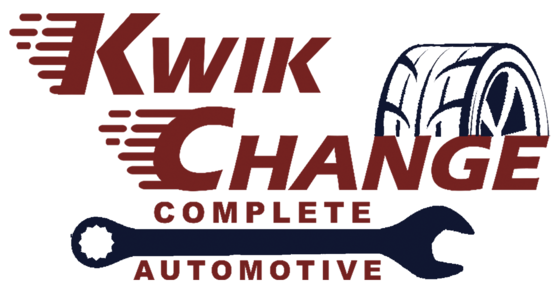This page provides answers to some of the most frequently asked questions about vehicle repair and service. We've thrown in some of our favorite tips and recommendations, too. Please call us or consult our Contact Us page for answers to your specific questions. We are happy to assist you!
Tires
-
How important is wheel alignment?
It is very important! Having your wheels aligned helps in prolonging the life of your tires. Research indicates that the average car is driven about 12,000 miles per year. A car with toe alignment just 0.34 degrees (Just 0.17 inches) out of specification has dragged its tires sideways.
-
Can I drive normally on my spare tire?
Many newer vehicles come equipped with a temporary spare, sometimes called a "donut". These tires are usually much smaller than the other tires on your car. It is important to realize that these spares have far more limitations than a typical tire, including speed and recommended driving distance. No more than 50mph and drive no further than 50 miles on the "donut" temporary spare.
-
With so many brand options and price differences why not just pick the cheapest tire. Is there really a difference?
The old adage: you get what you pay for is true in tire purchasing – somewhat! Since the introduction of the “radial tire” the assumption is that no significant changes have occurred in the world of tire building.
The facts are that major tire builders are spending tens of millions of dollars annually in research to improve their products and the reliability and performance of tires have taken a quantum leap forward. Research in the area of tread compounding polymers, rubber mixing methods, tread design, casing design and materials, build processes, and other research has resulted in a product that is far advanced from the tires we were driving on a decade ago. The discovery of Silica’s use in tread rubber compound alone has greatly influenced wear and adhesion characteristics of tires. Some of today’s tires can stop a car on a wet highway in distances unfathomable a decade ago. Tire builders strive to produce a product that balances production costs against safety, noise, ride quality, wear, handling, rolling resistance, and other attributes. Their cheapest products will not much focus on safety and other technologies that better tires have to offer. Conversely the higher priced lines often fall short of the best features. Knowledgeable Tire Sales Advisors can discuss test data and sort through the claims that manufacturers make regarding their products and help you make this important decision.
Vehicle Maintenance
-
What are the consequences of postponing maintenance?
Many parts on your vehicle are interrelated. Ignoring maintenance can lead to trouble: specific parts, or an entire system, can fail. Neglecting even simple routine maintenance, such as changing the oil or checking the coolant, can lead to poor fuel economy, unreliability, or costly breakdowns. It also may invalidate your warranty. Properly maintaining your vehicle is less expensive than repairs from negligence.
-
Why does my vehicle's maintenance schedule recommend so many fuel system services?
Modern engines have long abandoned carburetion with its many parts destined for failure in favor of simple and direct electronic injection of fuel. No longer are we shackled with the necessity of constant adjustment or repair. A properly maintained fuel delivery system today offers much improved reliability and efficiency than those systems of old.
Millions of cars today run at a level of efficiency considerably reduced, due to the high concentration of carbon deposits accumulated in the fuel injection system, intake valves, combustion chambers, oxygen sensor and catalytic converter. Carbon build-up clogs fuel filters, reduces fuel flow, distorts fuel spray patterns, limits fuel automation and decreases combustion efficiency.
Carbon build-up gradually robs your vehicle of performance and fuel economy, and may cause numerous problems such as engine malfunction, high emissions, excessive fuel consumption, loss of performance, rough idling and hard starts. Simply infusing an additive into a gas tank will not adequately decarbonizes injectors, cylinder heads, valves, intake plenums, exhaust emission sensors, and other critical components.
-
I have 100,000 mile spark plugs in my car. When will I need a tune-up?
In the traditional sense there is no such thing as a tune-up anymore. Carburetors and distributors with their myriad of parts destined to failure have been replaced with electronic injectors and electronic ignition systems. There is virtually little to wear out.
Aging Ignition wires and spark plugs may continue to function for 100,000 miles but not optimally. The car manufacturer’s boastful claim of 100,000 between tune-ups has little grounding in common sense, and is mostly a marketing ploy. At the price of gasoline these days even a three percent decrease in fuel efficiency is expensive, not to mention ecologically unfriendly. A fresh set of spark plugs any time over 50,000 miles will normally make a noticeable difference.
-
When should I change my spark plugs?
For maximum fuel economy and peak engine performance, your spark plugs should be replaced every 30 months or 30,000 miles, unless your vehicle is equipped with 100,000-mile platinum tipped spark plugs.
Vehicle Fluids
-
I have a leak under my car. How can I tell what is leaking?
The coloring of the liquid identifies the type of liquid. Coolant Fluid is orange or green, Engine fluid is Brown or Black, Transmission Fluid is Red or Pink, Power Steering Fluid is Light Brown, Differential Fluid- Brown. depending on the leak it could mean trouble, don't wait until it's too late!
Vehicle Smells & Sounds
-
My car is making a terrible sound, what information will help?
Squeaks, squeals, rattles, rumbles, and other sounds provide valuable clues about problems and maintenance needs. Here are some common noises and their definitions.
Squeal - A shrill, sharp noise, usually related to engine speed.
Click - A slight sharp noise, related to either engine speed or vehicle speed.
Screech - A high-pitched, piercing metallic sound; usually occurs while the vehicle is in motion.
Rumble - a low-pitched rhythmic sound.
Ping - A high-pitched metallic tapping sound, related to engine speed.
Heavy Knock - A rhythmic pounding sound..
Clunk - A random thumping sound.
The more details you can provide us, the better chance of locating the problem quickly. Does the noise occur when the engine is cold or warm? Hot or cold outside, rainy or dry? Does the noise occur while driving or only when parked? These clues help the technician diagnose your problems faster, saving you time and money!
Oil Change
-
When should I get my oil changed?
You should get your oil changed every 3000 miles or as recommended in your vehicle’s owner’s manual.
-
What is synthetic motor oil?
Synthetic motor oils can be a good choice for high output, turbocharged or supercharged engines, vehicles that are used for towing (especially during hot weather), or vehicles that are operated in extremely cold or hot climates.
Synthetic motor oils, though several times more expensive than mineral-based motor oils, can improve fuel economy and provide longer intervals between changes. They also provide instant lubrication on start-up.
Troubleshooting
-
What should I do if my car starts to overheat?
This is a very serious problem – if your car overheats for too long, you can damage your engine. As soon as possible, find a safe place to pull off the road and shut the engine off! Do not attempt to check the fluid level in the radiator as it can burn you. The best thing to do is have your car towed to a repair shop.
-
What dashboard lights should I worry about and which are just precautions?
Every dashboard light is responsible for notifying the owner of issues that need to be addressed. If any of the following lights are lit you need to have your vehicle looked at: Engine light, Oil light, ABS light, Traction light, Tire Pressure light.
Electrical System
Fuel System
Improving Gas Mileage
-
How can you increase fuel mileage?
To optimize gas mileage, check tires for proper inflation, make sure wheels are in alignment, check and replace filters, change Your oil regularly, keep your engine properly tuned, empty out your trunk of unnecessary items, observe the speed limit. These seemingly minor adjustments to your driving and maintenance habits can save on gas--and money!
Cabin Air Filters








